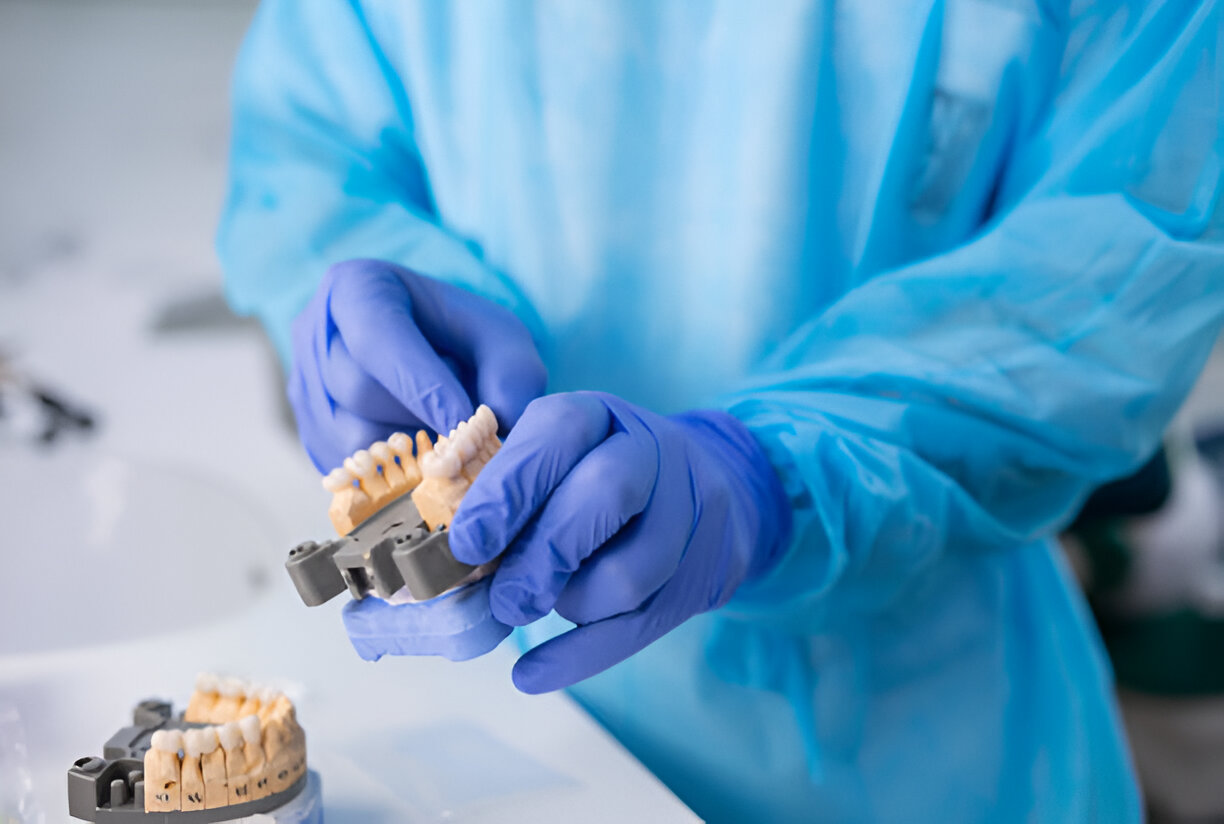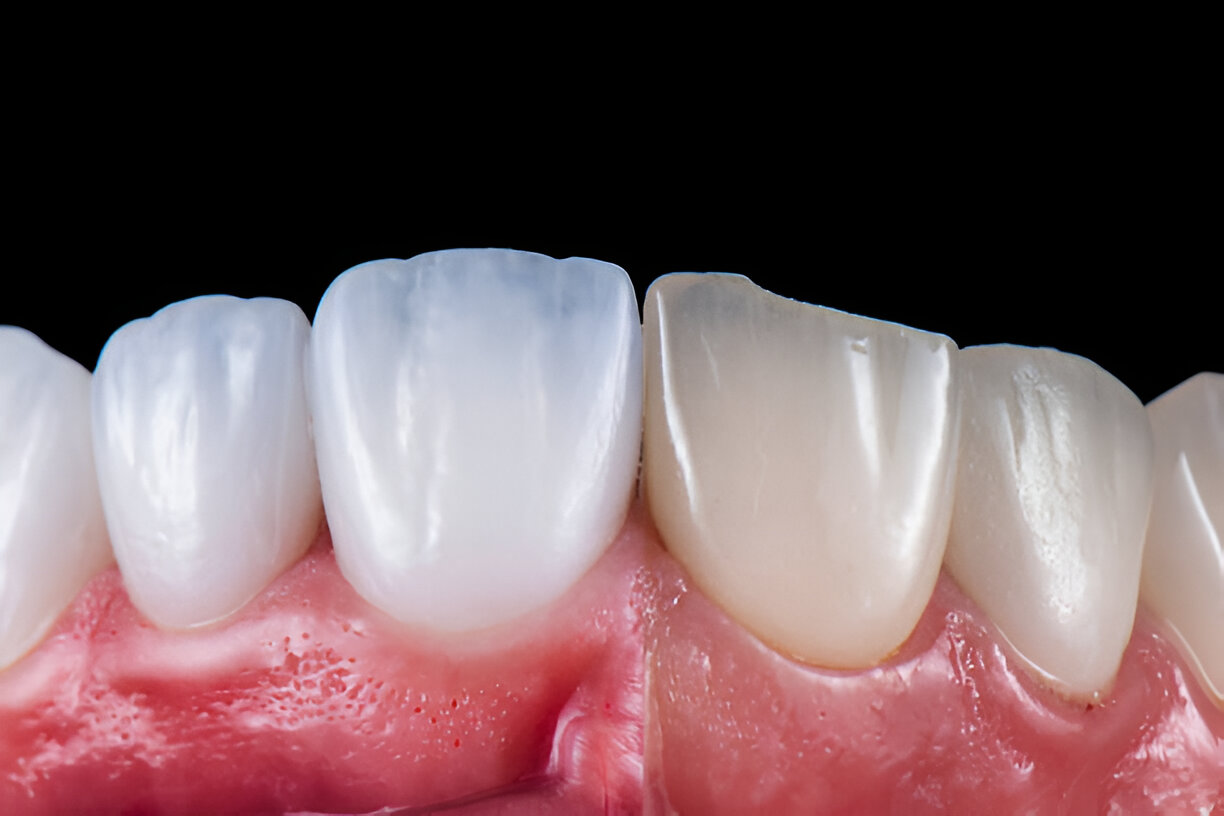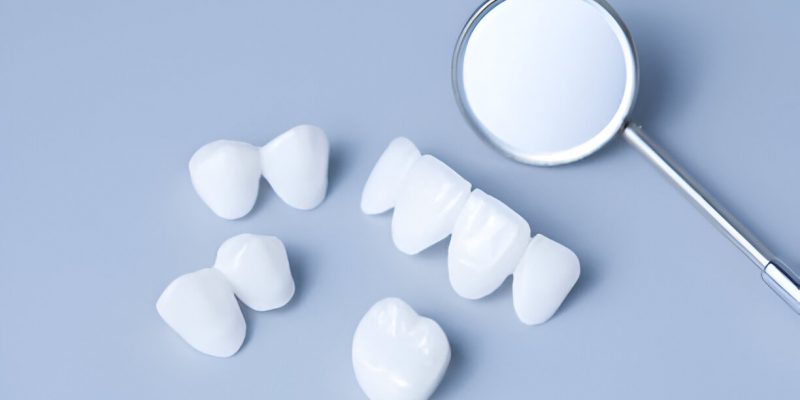Summary
Porcelain crowns for teeth are a versatile solution to restore damaged or decayed teeth, providing both durability and a natural look. This blog will guide you through the entire process, from the initial appointment to aftercare, while exploring why dentists in West Columbia recommend porcelain crowns for their patients. You’ll also learn about the costs, potential complications, and the expected lifespan of these dental restorations, helping you make an informed decision.

What Are Porcelain Crowns?
Porcelain crowns are caps fitted over damaged or decayed teeth to restore functionality and appearance. They are primarily used when a filling isn’t insufficient, or a tooth is too weak to sustain its structure. At Carolina Smiles Family Dentistry, porcelain crowns are famous for their durability, aesthetic appeal, and compatibility with natural teeth color.
Crowns can be made from various materials, but porcelain offers the best strength and visual appeal, making them ideal for front and back teeth.
Why Do You Need Porcelain Crowns?
Not every tooth needs a crown, but when a tooth is extensively damaged or at risk of breaking, dentists in West Columbia often recommend porcelain crowns as the best restorative solution. The most common situations requiring crowns include:
- Large Cavities: When a filling won’t suffice, a crown helps reinforce the tooth.
- Post-Root Canal Treatment: Teeth that undergo a root canal are more fragile and require protection.
- Cracked or Fractured Teeth: A crown shields the tooth from further damage and pain.
- Tooth Wear: Crowns help protect teeth from further degradation in severe wear cases.
Types of Porcelain Crowns
While porcelain crowns are generally categorized as “all-porcelain,” there are variations in materials and techniques:
- All-Porcelain Crowns: Made entirely from porcelain, these crowns are the most natural-looking option. They’re particularly suited for front teeth where aesthetics are critical.
- Porcelain-Fused-to-Metal (PFM) Crowns: These crowns combine the aesthetic benefits of porcelain with the strength of a metal core, making them more durable than all-porcelain crowns but slightly less natural-looking.
- Zirconia Crowns: Zirconia is a more robust material than traditional porcelain, making these crowns more resistant to cracks and chips while maintaining a tooth-like appearance.
What to Expect During the Procedure
Getting porcelain crowns usually requires two dental visits. Here’s what happens at each step:
First Appointment: Preparation and Impressions
- Examination: Your dentist will examine the tooth using X-rays to assess its health and the surrounding area.
- Tooth Preparation: A portion of the tooth’s outer structure is filed down to make space for the crown.
- Molds or Scans: After shaping the tooth, an impression or digital scan is taken to create a model for your crown.
- Temporary Crown: While your permanent crown is created, a temporary crown is placed to protect the tooth.

Second Appointment: Crown Placement
- Permanent Crown Fitting: During the second visit, your dentist removes the temporary crown and fits the permanent one.
- Adjustments: The crown is checked for proper fit, and any necessary changes are made to ensure a comfortable bite.
- Cementing the Crown: Once the fit is perfect, the crown is cemented onto the tooth.
Fun Fact: Did You Know?
Porcelain crowns can be made using 3D printing technology! Some dentists offer same-day crowns using CAD/CAM (computer-aided design and manufacturing), which allows the creation of a porcelain crown in just a few hours.
How Much Do Porcelain Crowns Cost?
The cost of porcelain crowns can vary depending on factors like the size of the tooth and the materials used. On average, crowns range from $800 to $1,500 per tooth. If you opt for a high-quality material like gold or zirconia, the price may increase to $2,500.
Most dental insurance plans cover a portion of the cost, especially if the crown is necessary for dental health. Always check with your provider for detailed coverage options.
Aftercare for Your New Crown
Proper care is essential for longevity once your porcelain crown is in place. Here’s how to maintain your crown and ensure it lasts for many years:
- Brush and Floss Regularly: Treat your crowned tooth just like any other toothbrush twice a day and floss daily to remove plaque and food particles.
- Avoid Hard Foods: Avoid hard foods like ice or nuts that could damage the porcelain.
- Night Guards: If you grind your teeth at night, your dentist may recommend a night guard to protect your crown.
Porcelain crowns generally last 5 to 15 years, but some can last even longer with proper care.
Possible Complications
While porcelain crowns are generally safe and effective, there are some potential complications to be aware of:
- Sensitivity: Some patients experience increased sensitivity to hot or cold temperatures following crown placement.
- Chipping: Although porcelain is durable, it’s not immune to chipping, especially if you’re prone to grinding your teeth.
- Loose Crowns: A crown can become loose if the cement weakens or deteriorates. Always follow up with your dentist if you feel any looseness.
Are There Alternatives to Porcelain Crowns?
If you’re hesitant about getting a porcelain crown, there are a few alternatives you can consider:
- Veneers are thin coverings placed over the front surface of teeth. They are mainly used for cosmetic purposes but may not offer the same protection as a crown.
- Onlays or Inlays: These partial restorations cover only a portion of the tooth and are a less invasive option than crowns.
- Bonding: A tooth-colored resin is applied to damaged teeth to improve their appearance and structure, but it is not as strong or long-lasting as a crown.

Key Takeaways
- Porcelain crowns for teeth are a durable and aesthetic solution for damaged teeth, offering both strength and a natural appearance.
- The procedure involves two visits, with a temporary crown placed before the permanent crown is fitted.
- Crowns can last up to 15 years or more with proper care.
- The cost of porcelain crowns typically ranges from $800 to $1,500, and they are often covered by dental insurance.
- Aftercare is crucial to ensure the longevity of your crown—avoid hard foods and practice good oral hygiene.
- Alternatives to crowns include veneers, onlays, and dental bonding, but they may provide a different level of protection.
Contact Carolina Smiles Family Dentistry
We specialize in crafting custom porcelain crowns that meet your specific dental needs. If you’re looking for dentists in West Columbia who can provide high-quality porcelain crowns, contact us today to schedule your consultation!
Ready to restore your smile with durable porcelain crowns?
Schedule an appointment at Carolina Smiles Family Dentistry today for personalized care!

